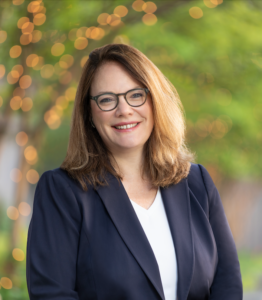The statement made by Sam Wineburg, Ph.D., in his recent Op-Ed in The New York Times, “The Meaningless of the .ORG Domain,” that .ORG domains are “meaningless” is factually inaccurate.
Meaningless: Adj.: To have no meaning or significance.
Professor Wineburg of Stanford University correctly states that the .ORG domain has no restrictions. Anyone can have one as long as they pay an annual fee. The opinion article goes on to note that the use of the domain can be used to imbue trust into misleading content.
Professor Wineburg’s study shows that this is confusing for an alarming number of young people (96 percent were confused by online content created by fossil fuel companies’ use of .ORG for an anti-climate change website). His thesis falters on the very point he uses to justify it. If the domain is meaningless, why would simply using it cause confusion? It’s because the opposite is true.
The domain is meaningful. The public understands that a .ORG address signals a commitment to the greater good.
A quick thought experiment helps show how this signaling is built into our digital lexicon. What do you think the content will be on the following domains? Is it the same as the .COM version of the brand?
- Google.org
- Box.org
- Twilio.org
- Canva.org
- Microsoft.org
For each of these companies (and many more), the .ORG is a social initiative supported by the company and they signal this difference by using the .ORG domain. Since the beginning of the Internet, the .ORG domain was meant for exactly this kind of signaling. The scientists who invented the Internet intended that a domain ending with .ORG would identify resources other than commercial (.COM) governmental (.GOV) or educational (.EDU).
Jon Postel, a computer scientist at the University of Southern California, was a hugely influential figure in the development of the modern Internet. He was even nicknamed “the God of the Internet” by his peers.
Postel wrote a document in March, 1994, called a “Request for Comment (RFC) 1591: Domain Name Structure and Delegation.” RFCs are the policy documents that form much of the Internet’s DNA and 1591 is one of the most important RFCs. In it Postel describes the original Internet domains and their intended purposes, including COM, NET, EDU, GOV, INT, MIL and ORG.
Postel identifies .ORG as: “intended as the miscellaneous TLD (Top-level domain) for organizations that didn’t fit anywhere else. Some non-government organizations may fit here.” It is easy to interpret this out of context as a catch-all. The “land of lost toys” domain. But Postel clearly describes .ORG in the context of the other domains, including .COM for commercial, .EDU for education, and .GOV for government.
Only one domain in his description specifically calls out organizations and NGOs: ORG.
Nearly 30 years later, Postel would be pleased to see what a vibrant space .ORG has become. For better or worse, the open design of the .ORG domain was intentional. It was meant to allow for all types of social impact groups — regulated or not — across the world. Over time, this trust signal has become stronger, not weaker. The world’s best known and relied upon nonprofits, including the United Nations (www.un.org) the Red Cross (www.redcross.org) and even the World Trade Organization (www.wto.org) use this signal.
Fooling all of the online people
Online trust is going through a massive intergenerational education process. Digital content will need to be scrutinized more deeply. Helping all generations distinguish between fact and opinion, news from fakes, and not to confuse the medium with the trust of the message.
Older generations have been shown to be highly susceptible to digital fraud. As 2019 research published in ScienceAdvances showed: “Older people are almost four times more likely to have shared fake news on Facebook than the younger generation.” However it’s not just older generations getting tricked online. When email spam first came out, the trust of the email medium fooled many people with the Nigerian prince scam and hundreds of others. Sadly, $700,000 is still earned by this scam annually decades later and Millennials are 77 percent more likely than other age groups to say they lost money to a scam that started with an email (Federal Trade Commission 2019 fraud report).
There are lots of places on the Internet where trust is an issue. Using .ORG domains as a focal point of misplaced trust on the internet is odd in the context of the many other places where online harm is rampant. The timing of the editorial is also odd. A private equity firm is now in the process of buying the rights of ownership for .ORG.
The Facts
Ethos Capital, a private equity fund, is in the process of purchasing the Public Interest Registry (PIR) for $1.135 billion and taking over control of the .ORG, .NGO, .ONG top-level domains. This takeover, which happened behind closed doors, is an issue that SaveDotOrg.org and thousands of supporting organizations that proudly use the .ORG domain are fighting.
Professor Wineburg, the author of The New York Times Op-Ed, is correct that high school kids are getting fooled by .ORG domain content online. It is also true that official looking email is fooling Millennials, fake news sites are fooling baby boomers, and lack of Internet literacy is tricking all Americans. The only real news in this op-ed is that .ORG domains are unregulated, the rest could have been summarized as follows: “Breaking News: Websites Can Trick People.”
More troubling is that this commentary is now being used to make the point that .ORG domains don’t matter and therefore it’s fine that ownership is being sold. A point used in a public call with the community by the actors involved in this purchase. What can be done? People new to this Internet domain battle might ask, “Why not just take your ball and play in a different field that is more regulated?” The answer is two-fold.
The first answer is that there is already incredible brand equity built in nonprofit organizations around their .ORG websites (see revenue of top 100 charities). It would cost these organizations huge amounts of capital to move not just their websites, but their email, their print material, their campaigns, and their SEO. They are effectively captured, which is probably why .ORG domains have one of the highest renewal rates, at more than 77 percent annually.
The second reason is that the regulated .NGO/.ONG domains are also being sold in this purchase. Selling the Public Interest Registry also means selling the regulated, certified nonprofit .NGO, .ONG domains, a potential future haven for the social impact industry. In a world where we desperately need more meaning and trust, dismissing .ORG as meaningless is unhelpful. Doing so while this global public good commons is in the midst of being sold to a hitherto unknown private equity firm is shameful. The coalition behind SaveDotOrg.org is raising the voice of the community, please join them.
***
George Weiner is founder of PowerPoetry.org and B Corp digital agency Whole Whale. Jacob Malthouse is founder of the .ECO domain.










